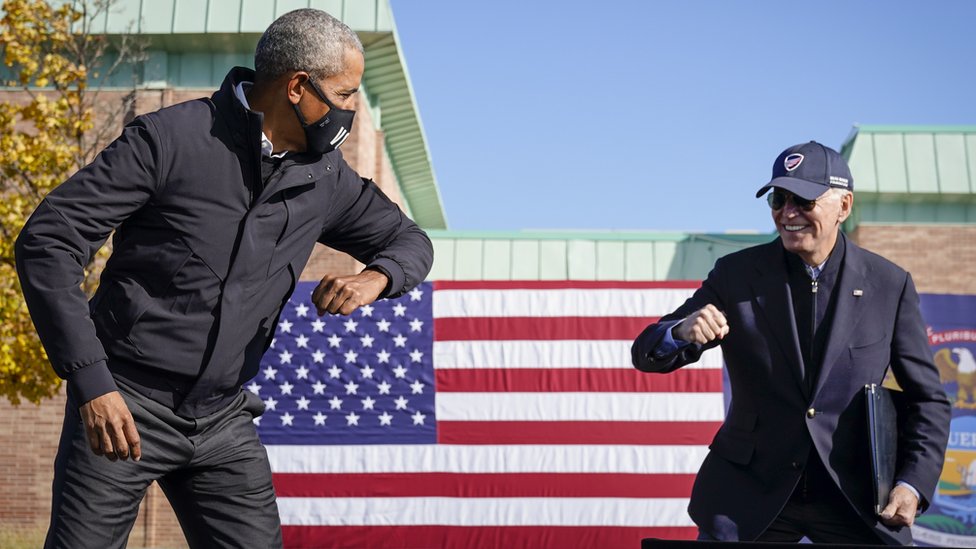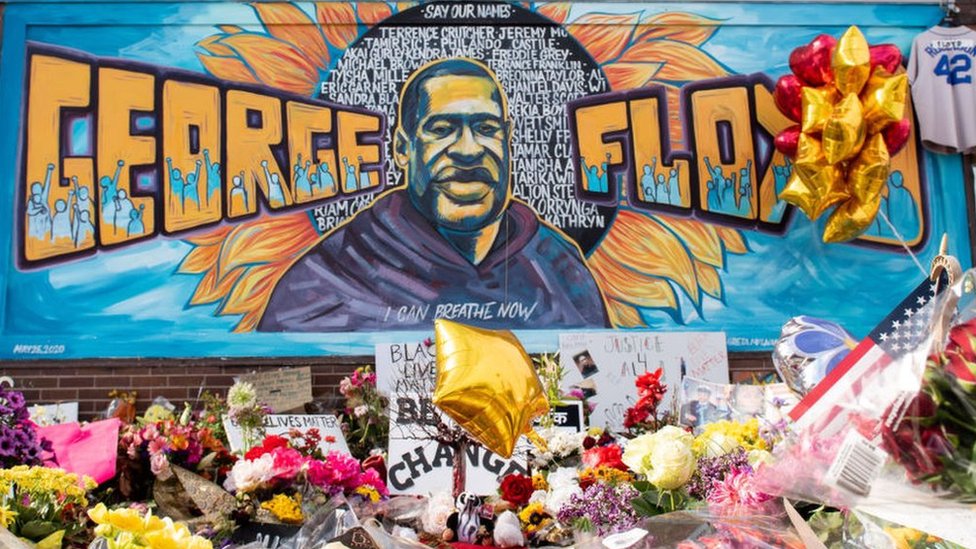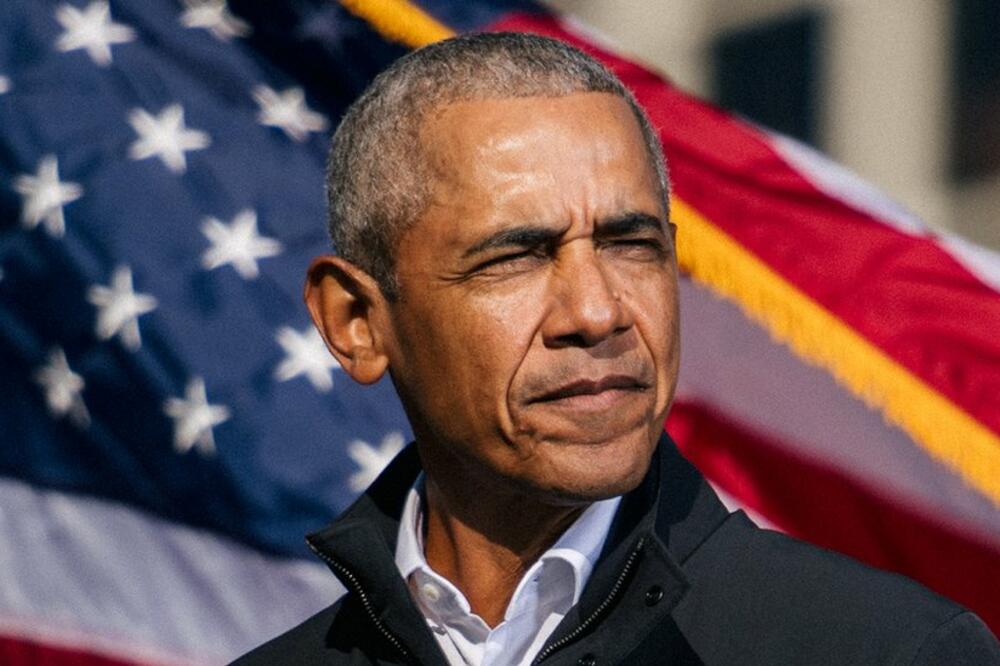America faces an enormous task in ending the polarizing culture of "crazy conspiracy theories" that have deepened the country's rift, Barack Obama says.
In an interview with the BBC, the former president says that the USA is even more sharply divided than it was four years ago, when Donald Trump won the presidential election.
And Obama suggests that Joe Biden's victory in the 2020 US election is just the beginning of bridging those divides.
"It will take more than one election to reverse that trend," he says.
- In a tweet, Trump admitted defeat, but repeated allegations of rigged elections
- What Biden's victory means for the rest of the world
- What could Trump do when he leaves the White House?
Dealing with a polarized country, he argues, cannot be left to politicians' decisions alone, but also requires structural changes and for people to start listening to each other, to agree on "common sets of facts" before even debating what to do. with them.
However, he says he sees "great hope" in the "sophisticated" attitudes of the next generation, urging young people to "cultivate that cautious optimism that the world can change" and "that they can be part of that change".
How is division fueled in America?
Anger and bigotry between rural and urban America, immigration, injustices like inequality and "crazy conspiracy theories — what some have called the death of truth" have been amplified in some American media outlets and on "turbocharged social media," Obama tells historian David Olusoga in an interview. for BBC Arts to promote his new memoir.
"We are very divided at the moment, certainly more than we were when I first ran for this office in 2007 and won the presidential elections in 2008," says the former president.
He suggests that this can, in part, be attributed to Trump's willingness to "inflame division because it's good for his politics."
- What if Trump refuses to leave the White House
- A catastrophic scenario that arouses fear in Americans
- What Joe Biden did and did not say about Serbia
Something else that has greatly contributed to this problem, says Obama, is the spread of misinformation over the Internet, where "facts suddenly don't matter anymore."
"Millions of people believe the notion that Joe Biden is a socialist, they believe the notion that Hillary Clinton is part of an evil cabal that is active in pedophile networks," he says.
The example he cites here with Hillary Clinton relates to the false theory that Democratic politicians run a network of pedophiles in a Washington pizzeria.
"I think at some point it's going to take a combination of regulation and standards within individual professions to get back to a point where we at least acknowledge a common set of facts before we start debating what to do about them."

Obama says that although many mainstream media outlets have introduced fact-checking in recent years in an attempt to stop the spread of misinformation online, it is often not enough because "false information has already traveled the planet before the truth has been verified and released to the world." ."
He adds that the divisions are also the result of socioeconomic factors such as growing inequality and the disparity between rural and urban America.
Such problems, he adds, are "common both in the UK and around the world", with people "feeling like they are losing their footing on the ladder of economic development and can be persuaded that this or that group is to blame."
Watch the video: Why will social networks change after the US election?
What about the Black Lives Matter movement and racism?
Obama, who made history as the first black president, says the issue of race is "one of the central original divisions in American history - our first sin."
Events that took place during the summer, including the death of George Floyd - a black man who died in police custody - and the reactions to his death in communities not only in the US, but around the world, have led to moments of both despair and optimism, he says.
"Despair that the chronic ongoing role of race and prejudice in our criminal justice system continues in such open form ... and tremendous optimism, which you've seen come out of the protest activism and interest that far exceeds anything we've seen before -- and more." peaceful."

It's important that the protests were multiracial, he says, adding that the reaction was different than the 2012 killing of Trayvon Martin, an unarmed Florida teenager who was shot dead by volunteer neighborhood watch officer George Zimmerman.
Zimmerman was later acquitted of murdering the XNUMX-year-old in a high-profile court case.
Obama also mentions the 2014 killing of an unarmed black man, Michael Brown, who was shot six times by a white police officer in Ferguson, Missouri.
- Death of George Floyd: Three facts that explain the anger in America
- Death of George Floyd: Why some protests turn violent
- Who are the Proud Boys and Antifa that Biden and Trump are arguing about
He says that while these incidents stirred passions across America, sparking a debate about race and justice, there still seemed to be "a resistance among large parts of the white community to the idea that this was more than an isolated incident or a case of a few bad apples."
"This summer you could see underrepresented black communities taking to the streets and saying black lives matter and embracing the notion that real change has to happen."
- Johnson, Clinton, Trump (and Nixon): All members of the "notorious" club
- It's not easy being America's first man - presidents and mental health
Obama spoke ahead of the release of the new memoir - The Promised Land - which follow his rise to the US Senate and his first term as president.
Announced to be published on November 17th, it is the first of two books covering his time in the White House.
Follow us on Facebook i Twitter. If you have a topic proposal for us, contact us at bbcnasrpskom@bbc.co.uk
Bonus video:




